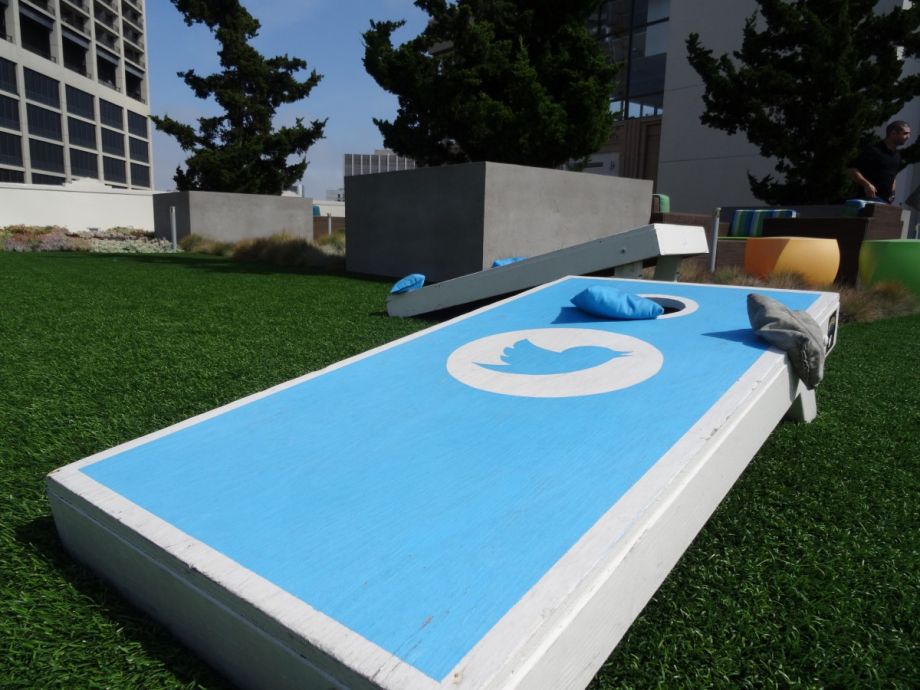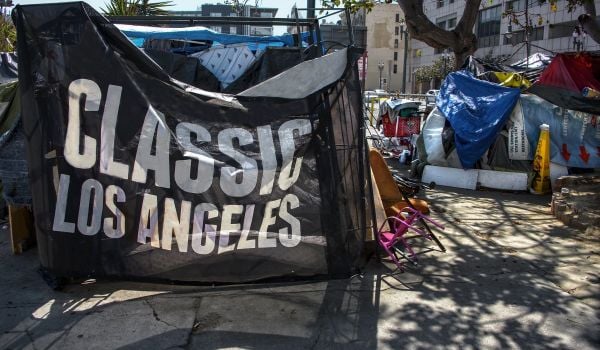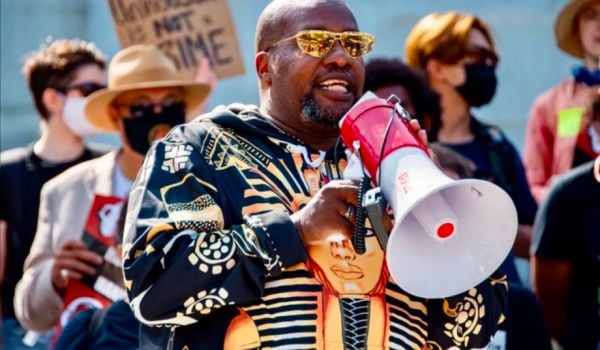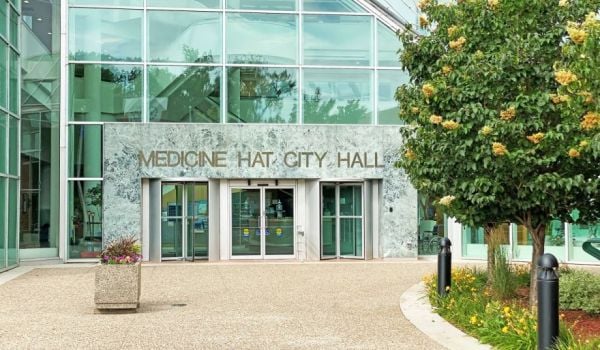To Joe Wilson, who runs the San Francisco homeless outreach service Hospitality House, having the city commit itself to a source of funding to address homelessness can go a long way. Wilson, who in the past sought shelter from Hospitality House himself, says residents have a “collective responsibility to improve the quality of life for everyone in the city.”
“If it takes devoting some additional resources to do that, to tackle both income inequality and housing affordability, it’s in everyone’s best interest to do that,” Wilson says.
In San Francisco, a city that has been referred to as a metaphor for income inequality in America, tens of thousands of residents have joined Wilson to push for a measure that would direct millions of dollars toward housing and mental health services through a tax on businesses that make more than $50 million annually.
The measure — known as “Our City, Our Home” — gathered enough signatures in July to qualify for the November ballot. Advocates estimate it could bring up to $300 million for homelessness prevention and the city’s affordable housing programs through the annual gross receipts tax they’re proposing.
A similar measure passed city council in Seattle earlier this year, after much controversy. A month later, bowing to pressure from business groups, the city council repealed the measure. Voters never got the chance to weigh in at the ballot box.
But Seattle’s failed attempt to make big businesses pay for affordable housing quickly inspired others to consider doing the same, including cities in Silicon Valley. Cupertino, home of Apple, ended up shelving its proposal until at least 2020. Mountain View, home to Google, did end up putting its measure on the ballot for this fall.
In San Francisco, the Coalition on Homelessness helped craft “Our City, Our Home” by working with community organizations and people who have experienced homelessness.
“It’s really a holistic and comprehensive measure that attacks the homelessness crisis at many different angles,” says Sam Lew, policy director for the Coalition on Homelessness.
Under the measure, at least 50 percent of the funds would go toward housing families, youths and adults. It would pay for subsidies of about 4,000 units of housing. The rest of the money would go toward public health for street-based care of those with mental illness. Funds would also be directed to families needing temporary subsidies to stay in their homes. Money would also be used to add new shelter beds.
Enthusiasm for this initiative is high, according to Lew. Volunteers and community organizers helped gather 28,000 signatures for the measure, more than 18,000 than they actually needed.
“I think that’s very reflective of how excited and ready San Franciscans are to have a measure like this on the ballot,” Lew says.
Not everyone is on board with the proposed new tax on large businesses.
According to The San Francisco Chronicle, the Office of Economic and Workforce Development sent a memo to the mayor’s office, expressing concern that the tax would disproportionately impact employees in mid-level jobs.
“There is a limit on how high taxes can go before you decide to go to Oakland, where the taxes are much, much lower,” said Jim Lazarus, senior vice president of public policy for the San Francisco Chamber of Commerce, according to the Chronicle.
Lazarus told the Chronicle there are companies in the city that pay more San Francisco tax than they pay in other states. Some businesses that could be impacted by the measure would be grocery stores like Safeway and Whole Foods, he said, according to the Chronicle.
Interestingly, the proposed measure would affect some companies that are already receiving a tax break from the city for locating in the Tenderloin, a neighborhood next to downtown San Francisco that the city is actively seeking to re-develop. The Tenderloin has had a history of being home to a large concentration of homeless individuals as well as a concentration of affordable housing. Companies that receive the tax break must also sign a community benefits agreement with the city. Twitter is one of the companies receiving the tax break. As Next City reported previously, the Tenderloin tax break has brought some benefits to the neighborhood, but at the cost of tens of millions of dollars in foregone city tax revenues and counting.
So far, over a hundred community groups, nearly 30 public officials, and nine businesses in San Francisco have endorsed “Our City, Our Home.”

Alejandra Molina is a Next City Equitable Cities Fellow for 2018-2019. Previously, she was a reporter for the Southern California News Group where she covered cities, immigration, race, and religion. In her decade-long career, she's reported how gentrification has affected downtown Santa Ana in Orange County, followed up how violent shootings have affected families and neighborhoods, and reported how President Donald Trump has impacted undocumented communities in the Inland Empire. Her work has appeared in The Press-Enterprise in Riverside, The Orange County Register, The Los Angeles Daily News, and The Mercury News in San Jose. She graduated with a bachelor’s degree in broadcast journalism from the University of La Verne, where she taught an introductory journalism course as an adjunct professor.
















